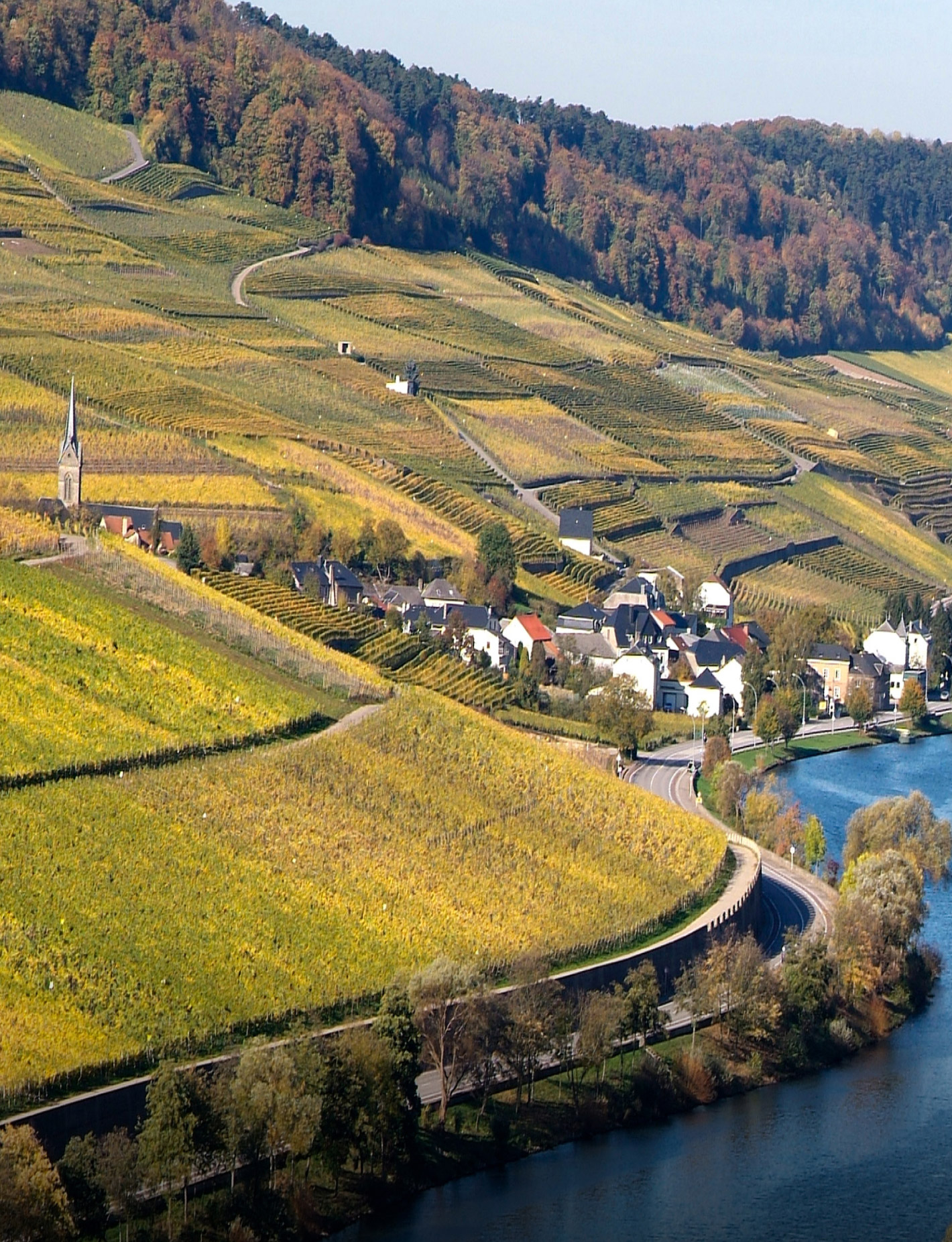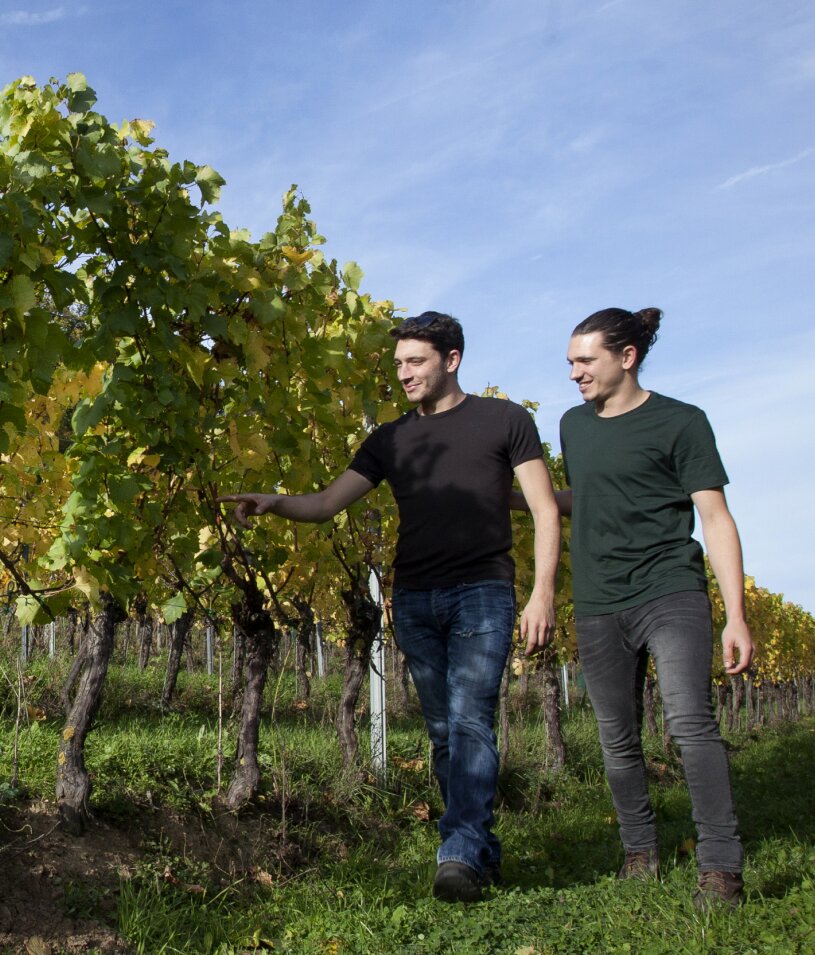1792

The winery
The Schmit-Fohl Winery is situated in the heart of the village of Ahn, one of the most picturesque along Luxembourg’s Moselle river, and is now in its 7th generation of family ownership.
A new milestone was reached in 2021 when Nicolas and Mathieu took over the 14.5 hectares of the Estate, following in the strong family tradition of adding their personal touch and vision to the rich heritage of previous generations.
The winery

Since their arrival, the two brothers have worked at converting the vineyards to organic in the interest of protecting both environment and wine heritage. From the 2020 vintage onward, their wines are certified as either organic or in conversion towards organic.
The winery’s deep-rooted tradition of careful vine maintenance (through for example the use of organic fertilizers and consistent defoliation) with a focus on limited yields and exclusively manual harvesting for preserving quality, have enabled a smooth transition to organic production which otherwise might not have been without risks.
The wines are vinified in accordance with prevailing mandatory organic production standards, with external interventions reduced to an absolute minimum.
This enables the making of authentic wines with great ageing potential and which express the typicality of the vines and the personality of the vineyards and soils.
The winery